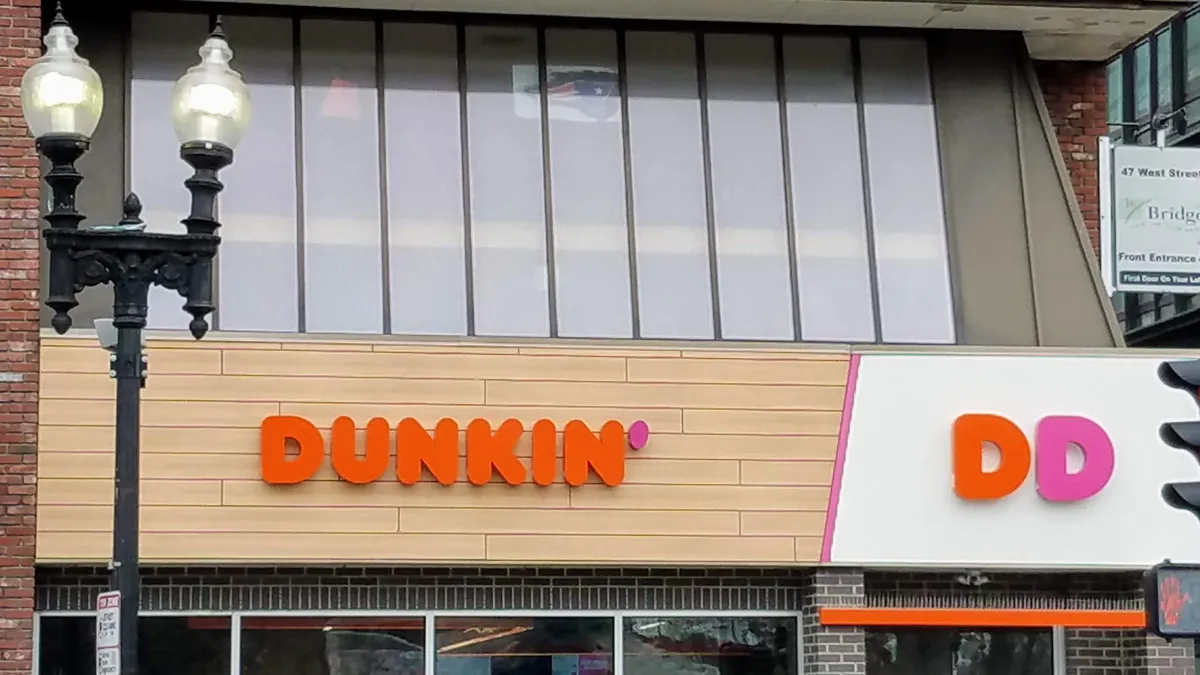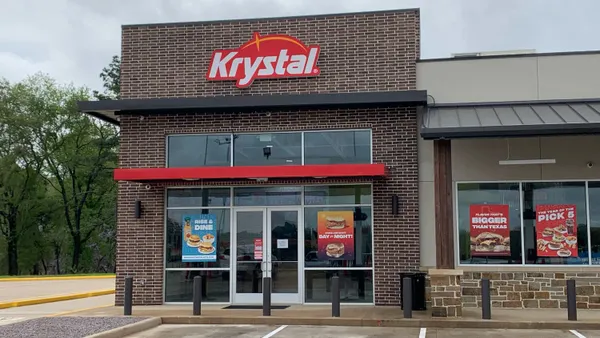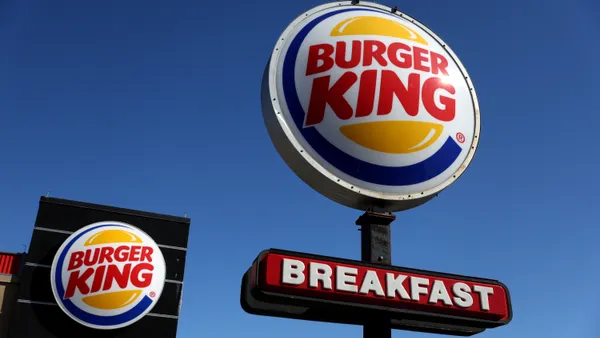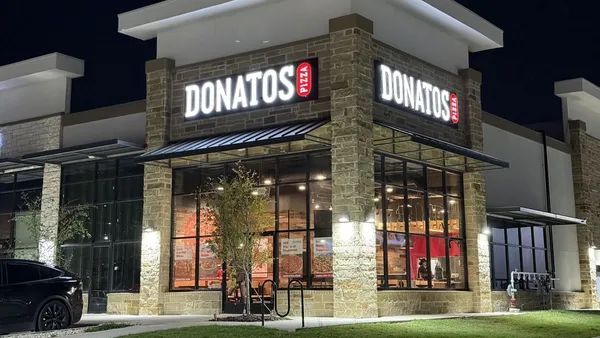Dive Brief:
- Dunkin' could permanently shutter roughly 800 stores by the end of 2020, according to a company earnings release. More than 50% (or 450) of these locations are within Speedway convenience stores, impending closures that were announced in February.
- Dunkin' said the stores that will close have low average weekly sales, cannot support beverage innovation or a next generation remodel or where traffic locations have changed, CEO Dave Hoffmann said during the earnings call on Thursday. These represent 8% of its U.S. footprint and only made up 2% of its U.S. sales last year. The chain could also permanently close roughly 350 stores outside of the U.S. in the second half of the year.
- Dunkin's U.S. same-store sales slipped 18.7% for Q2, but the chain says its sales improved over each month of the quarter. "For Dunkin’ U.S., same-store sales improved sequentially throughout the quarter, largely as a result of our ability to pivot quickly and introduce new menu items designed to appeal to customers who are now visiting us later in the day," Hoffmann said in the release.
Dive Insight:
Despite its own swath of impending store closures, Hoffmann told investors on company call Thursday that Dunkin's drive-thru channel and low-priced menu items give it a leg up over independent coffee competitors, Business Insider reports. Hoffmann also said that local coffee shop closures could give Dunkin' the chance to grow its network during the novel coronavirus pandemic.
The coffee giant also plans to add more drive-thrus to existing locations because drive-thru formats have performed four times better than units without the channel since the start of the COVID-19 crisis, Business Insider reports. By shuttering underperforming locations, Dunkin' believes that franchisees will be able to pour money into remodeling stores and opening new ones.
Dunkin' isn't the only major QSR to shrink its U.S. footprint amid the pandemic. McDonald's announced Tuesday that it will permanently close 200 of its roughly 14,000 U.S. stores. Like Dunkin', more than half of these locations are anchored in a separate business. According to the chain, over 50% of the stores on the chopping block are located inside Walmart stores and are generating weak sales. McDonald's said that these closures were already planned, but that the pandemic accelerated the strategy.
It's unsurprising that both of these major QSRs, which have been best insulated from the economic impact of the pandemic thanks to strong drive-thru and digital channels, are seeing poor performance from outlets within convenience stores and grocery retailers. As safer-at-home orders hold steady around the country, these concepts are no doubt experiencing significant foot traffic declines, which would gut the sale potential of restaurants within them.
The restaurant environment is extremely challenging in traditional real estate formats, as well. As of June 15, Yelp reports that 53% of restaurants that have closed during the pandemic have shuttered permanently. The Independent Restaurant Coalition predicts that as many as 85% of independent restaurants could permanently close by the end of 2020. Though major chains have the resources to weather this storm more easily, Dunkin' and McDonald's closures show that even QSR heavyweights won't emerge from the pandemic without losses.














